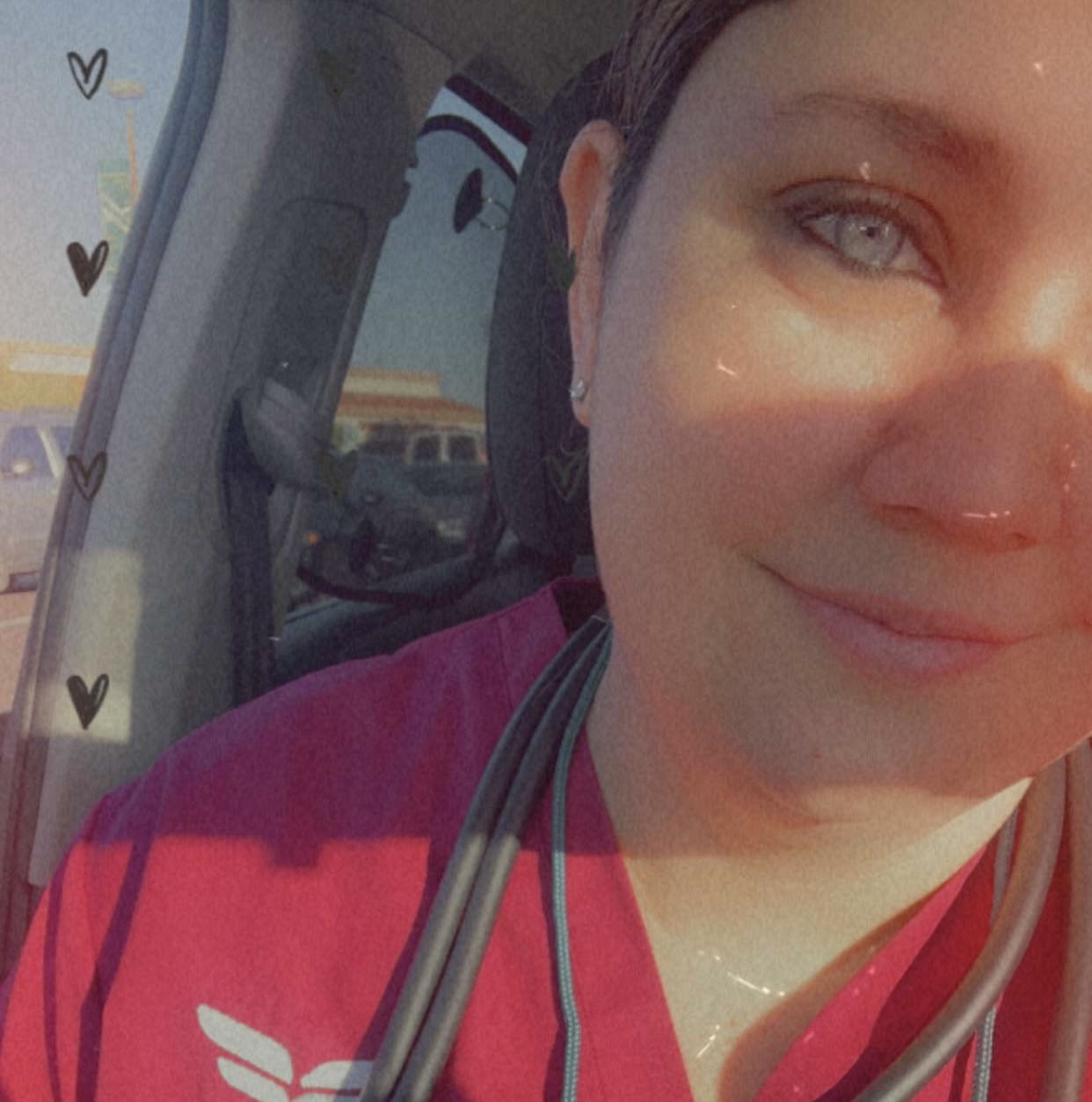Guide to Becoming a Medical Assistant
| Update: September 03, 2024
Medical Assistants play a vital role in ensuring a positive experience for patients visiting a health clinic, hospital or doctor’s office. They are trained professionals who help with clinical and administrative tasks, from drawing blood and checking vitals to greeting patients and managing patient records.
Becoming a medical assistant is the perfect way to begin a career in the medical field as the training covers all the basics you need to know to work in a healthcare facility, and the skills gained will translate well into more advanced positions. The best part is the training to become a medical assistant is quick and can be completed in less than a year.
If you’ve always wanted to work in the medical field and you are curious about how a career as a medical assistant could benefit you, read on to see how UEI’s Medical Assisting program can prepare you for an entry-level position in this field in as little as 10 months.
If you're interested in becoming a Medical Assistant, consider enrolling in UEI College's Medical Assistant Program. Our program allows you to earn your Medical Assistant Diploma in as little as 10 months, placing you on track to becoming a medical assistant quickly.
What is a Medical Assistant?
Medical Assistants are trained professionals who work directly with doctors and nurses to ensure each patient receives the care they need. They may work in a doctor’s office, medical clinic, outpatient clinic, hospital, chiropractor’s office, or any other healthcare facility.
The role of a medical assistant may vary from one office to the next depending on the size and scope of the office, but they are trained to handle both administrative and clinical tasks. When performed well, these tasks free up the doctor's time, allowing them to pay more attention to each patient they visit and have reliable health information they can use to provide a diagnosis and treatment. Medical assistants often act as a liaison between the doctors, nurses, and patients as they are usually the first person a patient encounters when they enter the exam room.
A Medical Assistant may be assigned to do mostly administrative tasks like answering phones, scheduling appointments, greeting patients, managing inventory, verifying insurance coverage, and preparing the exam room.
On the clinical side, medical assistants may help with tasks like recording patient vitals, drawing blood, performing diagnostic tests, administering vaccines, or assisting the physician with a routine exam.
Medical assistants are trained to offer support in all areas of the office, making them a vital part of the team. They work closely with everyone in the office, from doctors and nurses to office managers, billing professionals, and of course, the patients.
What Skills Do You Need to Become a Medical Assistant?
Medical assistants work on a wide variety of tasks and interact with every person within a healthcare facility. That’s why the job requires a good mix of hard and soft skills. Hard skills are the day-to-day field-specific skills that are necessary to do the job. Soft skills are the personal characteristics that make you a good fit for the position.
Medical assistants working in the front office must be able to:
- Schedule appointments
- Send prescriptions to the pharmacy
- Track medical supply inventory
- Update and maintain patient records
- Complete tasks on a computer
Medical assistants in the back office need to know how to:
- Draw blood
- Record patient vitals
- Assist with medical exams
- Sterilize medical equipment
- Collect lab specimens like urine or saliva
- Remove stitches and dress wounds
- Administer vaccines
- Perform ECGs
- Follow up on lab results
The soft skills that are important for the front office or back office include:
- Excellent verbal and written communication. This includes being able to listen attentively. Medical Assistants work directly with patients, and communicating a patient’s needs to a physician or vice versa can be a matter of life and death. It’s important for a medical assistant to speak clearly over the phone or in person, take diligent notes, and be compassionate when delivering directions or explanations.
- No one is prepared for a medical emergency, and when it happens, it can be very emotional. It is important for anyone working in a physician’s office to have empathy with those they are treating.
- Medical assistants provide a great amount of help around the office, and that often requires juggling several tasks at one time. It’s important for medical assistants to be able to roll with whatever happens and jump in where needed.
- Attention to Detail. Medical assistants are often responsible for updating records and may also help with some minor coding for billing purposes. Small mistakes in these areas can have a major impact on the patient, so it’s important to work carefully.
- Medical assistants work as part of a larger team. It’s important for team members to be able to rely on the professionalism of a medical assistant.
- There is never a reason to be bored as a medical assistant. Each day brings new challenges and new opportunities to learn and grow. In some situations, it may be up to the medical assistant to offer their assistance and show their eagerness to gain new skills.
While some of these soft skills may sound like something you’re born with, or you’re not, they can all be taught. A good medical assistant training program will provide opportunities to practice not only the clinical skills but the soft skills as well before you head out into the field.
Should You Become a Medical Assistant?
If you have always dreamed of working in the medical field and caring for patients but have ever felt unsure about where to start, becoming a medical assistant is a great option. This exciting position allows you to work closely with a physician and provide direct assistance to patients when they come into the office. If you’re still unsure about a career in medical assisting here are some things to consider:
There is a Great Need for Medical Assistants
Medical assistants do so much in a healthcare facility, and the need for professionals with their skillset is growing. As baby boomers age and medical technology changes, there will be an even higher demand in the medical field. There is no better time to get started than now.
Medical Assisting is a Great Steppingstone into Healthcare
Unlike becoming a nurse or a doctor, the training to become a medical assistant is relatively quick and accessible, even for people who have less than traditional history with education. Once you are trained and begin working in the field, you will have the opportunity to see firsthand how a medical facility runs and the skills of a medical assistant translate well into becoming a nurse or physician. One of the most exciting things about a career in the medical field is the wide variety of ways to grow and specialize to build a career you can be proud of.
“Anyone can be a great MA! Even if you have a fear of needles,” said Delila Castillo, an MA Instructor at UEI. “There are so many positions you are able to work in after MA training. I enjoy working hand in hand with doctors and learning new things daily as I am helping my patients.”
Training to Become a Medical Assistant is Quick.
As explained above, many positions in the medical field require years of schooling and studying. The training to become a medical assistant is quick and hands-on. However, if you’re serious about a job in this field, most employers will not consider your resume without some training listed. The field can be competitive and employers looking to hire medical assistants like to know you’re ready to get started on day one.
Do Medical Assistants Need a License in my State?
In general, a medical assistant is an unlicensed position. Different states may have different requirements for certifications.
Arizona
Arizona does not require medical assistants to be licensed, but the state does require that employers check, before hiring, that an applicant has completed an accredited training program. If an applicant has not completed a training program, they can also qualify by passing a certification exam.
California
The state of California does not require medical assistants to be licensed or registered, but most employers like to know that employees are certified before being hired. The California Certifying Board for Medical Assistants provides state-specific certification for medical assistants.
Georgia, Nevada, Texas
Georgia, Nevada, and Texas do not require medical assistants to be certified, but those who are certified will have an edge over their competition when it comes time to hire. National certification is recommended.
Washington
The state of Washington requires all medical assistants to be licensed and certified. Applicants for a medical assisting license in Washington must provide proof of completion of an accredited program and pass a certifying exam. If a person has completed a training program but has not passed a certifying exam, they may qualify for an interim certificate for one year or until they pass the exam. For more information, visit the Washington State Department of Health Website.
Do Medical Assistants Perform Hands-on Training?
While some medical assistant training programs may be purely online, at UEI College, we believe the best way to learn is through practice. That’s why our programs offer hands-on opportunities from day one. Throughout the course of the program, students will practice giving injections, drawing blood, recording vitals, and performing diagnostic tests like an ECG.
“My students enjoy giving injections and blood draws the most,” said Delila Castillo, an MA Instructor. “These skills are building their confidence, knowing that they will succeed in the medical field. They also enjoy sheep or cow heart dissection projects during our cardiovascular module.”
How to Apply to UEI College’s Medical Assistant Program?
If you’re serious about becoming a medical assistant and want to attend UEI College for your training, simply give us a call or fill out our online form. Our admissions representatives will give you a tour of the campus and walk you through the application process. Each person’s background and experience are different, but our goal is to make sure you have all the information you need to make an informed decision about your education.
Does UEI College Offer Financial Aid for the Medical Assistant Program?
Yes, UEI College does offer financial aid to those who qualify. You may find grants, scholarships, or loans that can help cover some of the cost of the program. Our Financial Aid department will help you fill out the Free Application for Federal Student Aid (FAFSA) and see what options may be available to you.





